With a website builder, you can have a personal blog or portfolio up and running in no time. According to a recent study by SiteBuilderReport, Wix and Squarespace take up more than half of the website builder market share. But this looks to be on the fall as more competent competitors are entering the market.
As new 0ptions emerge all the time, how do you know if a website builder is right for you and your business? The choice can be overwhelming, and you definitely don’t want to have to start again and rebuild your website if you’ve made a bad choice. Thats why we’ve put together an impartial list of the best website builders to help you out.
Our pick for best website builder: Wix

Wix has been one of the most popular website builders for years now. Their world-class platform is now being used by over 200 million users worldwide. And for good reason, Wix makes it easy for anyone to build a classic and modern-looking website without knowing any code with its Editor X interface.
The drag-and-drop building tools make it a cinch for even the most technically challenged to create fantastic sites. But before you even get that far, the builder comes stocked with more than 800 well-designed templates to suit the needs of any business. This can be overwhelming for some, but Wix rectifies this with their helpful “Help Me Choose” tool. When combined with Wix Artificial Design Intelligence (ADI), anyone can quickly build a great-looking website despite their worst efforts.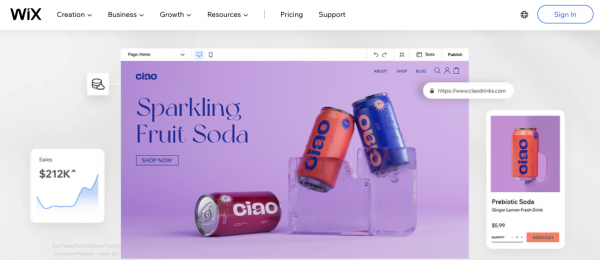
You will find a huge amount of flexibility within each template. Wix also comes packed with features, even with the most basic business plan. These include an impressive Logo Maker and SEO toolset to help streamline the successful launching of your business’s website. The Wix mobile app also lets you manage your website on the go from the smart device of your choice. Not to mention you can opt for dropshipping with the Business Unlimited plan or higher ($27/month).
Other features include dynamic websites with interaction and effects like header scrolling, animations, and more. Developers will be able to dive into Velo, Wix’s full-stack development platform that empowers users to rapidly, build, manage, and deploy professional web apps. The free plan will let users build creative websites easily. However, those that want a custom URL and an ad-free site will want to sign up for at least a basic package.
Pros:
Cons:
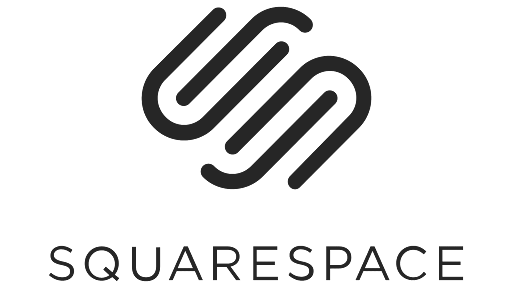 Like Wix, Squarespace has been near the top of the website building industry for a long time now. Founded in 2003, the platform has helped to build millions of websites across the web. Squarespace is the perfect solution for those wanting the prettiest, hot n’ ready templates that will make your new website pop. It is perfect for portfolio building, professionals, and small eCommerce businesses.
Like Wix, Squarespace has been near the top of the website building industry for a long time now. Founded in 2003, the platform has helped to build millions of websites across the web. Squarespace is the perfect solution for those wanting the prettiest, hot n’ ready templates that will make your new website pop. It is perfect for portfolio building, professionals, and small eCommerce businesses.
With the basic plan, users get access to some 120 odd creative and sophisticated site templates. There are premade layouts for blogging, photography, fashion, and restaurants to name a few. The templates are stunning on their own, but users can easily manipulate fonts, boxes, colors, and more with a slick drag-and-drop interface. Those who wish can also customize further with Custom CSS.
The platform supports AMP (accelerated mobile pages) and ensures a flawless checkout process on any device. There are also basic SEO tools for novices as well as basic website metric tracking. The Business tier starts at 23$ per month and adds a fully integrated E-commerce extension that includes marketing tools, inventory management, and control over shipping, payment, and taxes.
Building sexy and polished pages are a breeze for any but the most computer illiterate. But for those wanting more from the platform, there is a range of third-party extensions available for working with apps like Quickbooks, ShipBob, Mailchimp, Candid Wholesale, and much more. These connections can add more capabilities and scrape important data that save your business loads of time and money.
Pros:
Cons:
 Weebly is a website e-commerce service that powers more than 50 million websites around the world. In terms of aesthetics and functionality, Weebly sits somewhere in the middle of the likes of Wix and Squarespace. Like those top builder platforms, Weebly’s main interface is drag-and-drop based with plenty (50) of pre-built templates provided. It can help users create everything from blogs to eCommerce stores.
Weebly is a website e-commerce service that powers more than 50 million websites around the world. In terms of aesthetics and functionality, Weebly sits somewhere in the middle of the likes of Wix and Squarespace. Like those top builder platforms, Weebly’s main interface is drag-and-drop based with plenty (50) of pre-built templates provided. It can help users create everything from blogs to eCommerce stores.
Although less creative and flexible when it comes to designs than say Squarespace, Weebly really shines with its simple editor. The building process is structured in a straightforward process that makes it easy to do exactly what you want. You may not be able to build the most avant-garde designs, but you trust your website will appear and function as it should.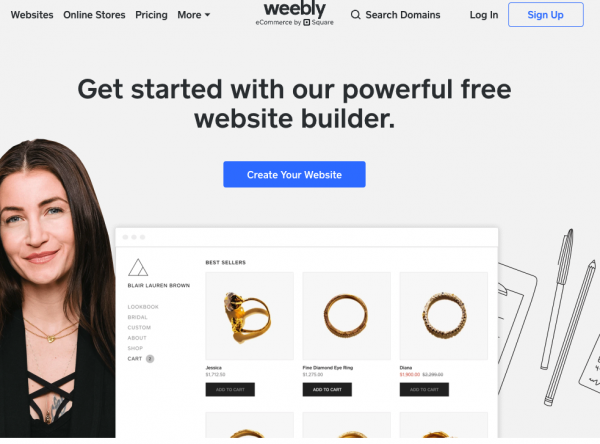
Weebly can do much more than basic website design and a big part of this is the platform’s relatively recent partnership with Square for e-commerce. The eCommerce toolset includes customizable email templates for things like welcome emails and abandoned carts. And it also comes with SEO and site metrics to help you boost the performance of your website and its landing pages.
Other eCommerce features include:
For those looking for a free website building solution, Weebly can’t be beaten. But for a handful of dollars more per month, users can connect a custom domain and add more ecommerce tools.
Pros
Cons

 Unless you’ve been living under a rock (without the internet), you’ve surely encountered Shopify several times while making purchases online. The platform is much more than just an online shopping cart solution. Today, this all-in-one commerce platform powers millions of businesses on the web. The first thing to be aware of is that Shopify is good at what it does, but it is highly specialized.
Unless you’ve been living under a rock (without the internet), you’ve surely encountered Shopify several times while making purchases online. The platform is much more than just an online shopping cart solution. Today, this all-in-one commerce platform powers millions of businesses on the web. The first thing to be aware of is that Shopify is good at what it does, but it is highly specialized.If you are looking for a creative portfolio or content management (CMS), you should look elsewhere. The platform is as easy to use as something like Wix, but with much more flexibility with things like product and sales details. You get 70 plus themes for your storefront that range from clean to quirky. Each template can be easily branded and customized and comes with a built-in mobile commerce shopping cart for an optimal user experience for smartphone and tablet users.
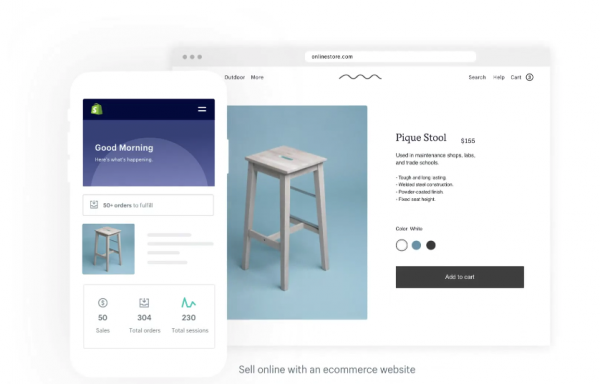

Naturally, Shopify also comes in with all the expected features for managing your online store. This includes things like enabling customer accounts, email automation with templates, inventory m management, order fulfillment, dropshipping, and loads more. You can also categorize and group customers based on location, purchase history, or other parameters.
For marketing and SEO, there are some basic tools for guidance and creating things like H1 or meta tags. You also get automatic sitemap.xml generation for products, webpages, and blog posts so search engines can index your important pages with ease. The platform comes with other important features like:
Shopify makes it easy to get your web store up and running and the website builder can scale with large businesses.
Pros:
Cons:

 HostGator hails from Houston and offers an affordable and highly effective website builder for small businesses and individuals. The company is web hosts first and foremost, but don’t let that fool you. The platform features the standard drag-and-drop interface and offers users a nearly unbeatable uptime with an SLA of 99.99%.
HostGator hails from Houston and offers an affordable and highly effective website builder for small businesses and individuals. The company is web hosts first and foremost, but don’t let that fool you. The platform features the standard drag-and-drop interface and offers users a nearly unbeatable uptime with an SLA of 99.99%.Creating a new website with HostGator couldn’t be simpler. Just answer a few questions, and then let the AI do the rest. You can then create branding with the LogoMaker or upload your own if you already have one. You also get free access to the Unsplash library for images.
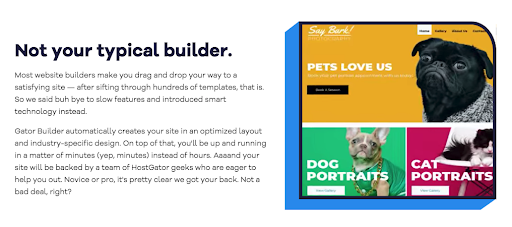

With HostGator, there are many features for online stores:
Where the platform really shines is with email marketing. All plans allow for at least three email campaigns with up to 250 emails per month. This includes handy visual analytics and campaign reporting, adding blog posts to email newsletters, simplified opt-outs, and automated email scheduling. It makes it easy for anyone to build and implement a campaign like a pro.
Included in any of their plans are a free domain and free SSL certificate so you can be sure your custom site is secure. Also included are 24/7 chat and email support.
Pros
Cons
GoDaddy is a no-frills and simple website builder. It is designed with speed and ease of use in mind. You can design a website for free by choosing from 100s of templates aimed at industries like beauty, art, music, food, travel, nonprofits, and much more. It’s not highly complex, but you will be able to create a professional-looking website in minutes to hours.


The free plan isn’t too bad on its own and includes a fair amount of features like:
For more depth, the basic plan will appeal to online merchants with a built-in marketing and analytics dashboard. From here you can monitor your sales and marketing channels to glean valuable insights. This will also give you access to the premium content library and templates that will help your website stand out.
Other premium features include email signup forms, email list segmentation, social media posting, and managing business listings on Yelp and Google.
Pros
Cons
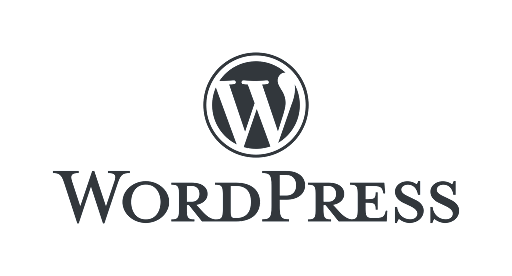
 WordPress is the most popular website builder on the planet accounting for 43% of the web today. But let’s not be confused about what the platform can do. WordPress.org is a powerful open-source application for heavy CMS websites. WordPress.com is the much simpler cousin designed for tech-literate users rather than developers.
WordPress is the most popular website builder on the planet accounting for 43% of the web today. But let’s not be confused about what the platform can do. WordPress.org is a powerful open-source application for heavy CMS websites. WordPress.com is the much simpler cousin designed for tech-literate users rather than developers.With that being said, WordPress.com comes with a much steeper learning curve than most other website builders on this list. This is because moderate-to-power users will need to know some basic coding or CSS to really get the most out of the platform. Instead of templates, WordPress uses what are called “themes.” There are themes available for the free plan but many more premium themes available to paying subscribers. You can also opt to purchase any theme as a standalone.


Professionals who want to use a custom domain will need to either purchase web hosting from WordPress or another service provider. But the basic plan won’t break the bank at $4 per month. But basic, it is indeed. Those wanting anything beyond content management will be shocked at the lack of capabilities with the most basic tier. You collect payments but this feature is rudimentary and unsuitable for most business models.
The basic plan does not support live chat support but does come with email support as well as access to a lofty community knowledge base. If you have an idea, WordPress can probably do it for you, but get ready to watch some lengthy YouTube tutorials. What is great about WordPress is the wide host of plugins available. There are WordPress plugins for reporting, SEO, backups, email subscriptions, embedding media, affiliate marketing, and more, making the experience customizable.
For a free content management system, WordPress.com is tops. Those needing eCommerce capabilities can find things like inventory management and dropshipping.
Pros
Cons

 Bluehost has built its reputation as a go-to web hosting provider for WordPress users for the past 10 years. However, more recently, the company has brought its own website-building product to the marketplace. With their platform, the process of building and managing a WordPress website has been streamlined like never before.
Bluehost has built its reputation as a go-to web hosting provider for WordPress users for the past 10 years. However, more recently, the company has brought its own website-building product to the marketplace. With their platform, the process of building and managing a WordPress website has been streamlined like never before.We have already talked about what WordPress.com can and can’t do. But with Bluehost, you can forget about all of that. When it comes to design, users get access to 300 plus templates to get started. From there you can select to either use the traditional WordPress interface or opt for the more intuitive Bluehost Website Builder (we recommend the second one).
Some are better optimized for mobile than others, but the editor will guide you to the best for your business after you enter some basic information.


You can just start typing words into the generator and something in the general ballpark will appear. Next, you can click on and drag-and-drop from a huge range of customizations including fonts and background colors. There are plenty of stock images provided by Bluehost but you can also upload your own photos. However, once uploaded, they can only be resized so you will need to edit them beforehand.
Bluehost also gives you access to plenty of handy eCommerce features with their Pro plan which is priced at $9.95 per month. This includes payment processing and inventory management via the WooCommerce plugin. Additionally, there are pricing and packaging templates for a speedy setup of your online shop. Because Bluehost requires a WordPress account, it is best for those already with existing WordPress sites. It is a great option for either expanding the functionality of your website or giving it a massive makeover.
Pros
Cons
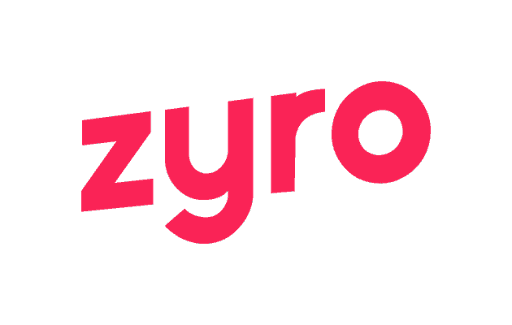
 Compared to Squarespace and Wix, Zyro is right up there with a modern and stylized design. While not packed with as many features as some platforms, Zyro is perfect for many small businesses. As CEO Giedrius Zakaitis puts it, they are “obsessed with giving our users the simplest and fastest way to build a website or an online store.” This means with their website builder, there is no IT staff required.
Compared to Squarespace and Wix, Zyro is right up there with a modern and stylized design. While not packed with as many features as some platforms, Zyro is perfect for many small businesses. As CEO Giedrius Zakaitis puts it, they are “obsessed with giving our users the simplest and fastest way to build a website or an online store.” This means with their website builder, there is no IT staff required.There’s a healthy range of stunning designer templates for users to choose from. The drag-and-drop interface makes it easy to add and edit features. And Zyro’s AI-powered writing tool can instantly generate text for you to get relevant content on the page as quickly as possible. Zyro AI can also do things like resize and upscale images or help to create a logo.
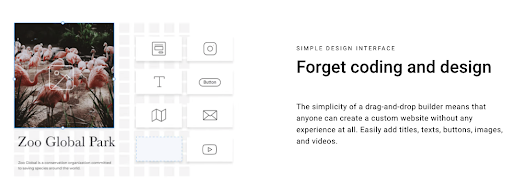

Next up in the features list, Zyro comes with impressive built-in functionality. The Quick Store Launch can actually get your online store up and running in minutes! Inventory and orders can all be tracked from a handy dashboard as well as any reporting or customer service metrics. Users can access a range of features like order management, an Instagram store, and abandoned cart recovery at higher tiers starting from $8.90 per month.
Perhaps even more impressive is the included capable yet simple CRM tool which lets you automate customer emails and provide customizable discounts and coupon codes. With Zyro, you can also use SEO tools and social media integrations to expand your reach and hit your targeted audience.
You can also painlessly create tailor-made ads for Facebook (with the Facebook Pixel) and Google Shopping all from within the builder. Oh, the platform supports over 70 of the most popular payment methods including Paypal, Visa, and Stripe.
Pros
Cons
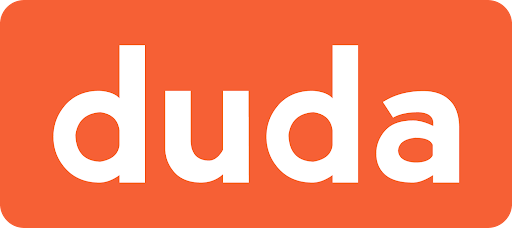
 Compared to many on this list, Duda may appear to be different than most. That’s because the platform was originally created for web designers building multiple websites for clients. This means the most basic plans are quite capable and that is reflected in their price points. But don’t psych yourself out, more than 450,000 businesses are using this award-winning platform to build and manage their company websites.
Compared to many on this list, Duda may appear to be different than most. That’s because the platform was originally created for web designers building multiple websites for clients. This means the most basic plans are quite capable and that is reflected in their price points. But don’t psych yourself out, more than 450,000 businesses are using this award-winning platform to build and manage their company websites.In fact, on top of more complex machinery, Duda is all about simplicity. This starts with a selection of over 100 templates and an intuitive drag-and-drop editor. Developers and power users can also get much more detailed with coding scripts. The platform makes it easy for any type of user to get as much or as little as they want out of the design process.
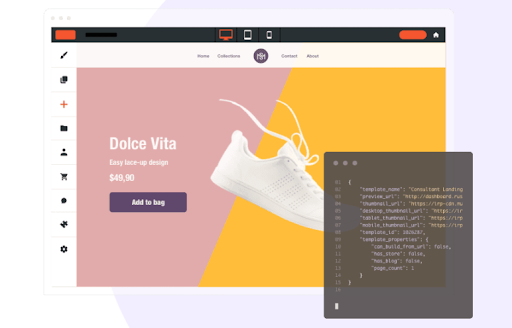

Every plan also includes:
Unfortunately, phone and live chat support are only available at hiring pricing tiers starting with the Team Plan at $22 per month. The higher pricing plans also add a wealth of advanced analytics and reporting capabilities like email reporting. The app can also integrate with hundreds of APIs for data scraping, automation, and creative workflows to improve other areas of your business.
Forward-thinking commerce businesses will especially benefit from the more advanced customer personalization features. With Duda, you can create custom rules for visitors at a granular level. After setting site personalization triggers like time of day, geolocation, and the number of visits, set actions will take place. This can be popups, notifications, or custom actions. This type of engagement can lead to better lead qualification and increased conversions.
Pros
Cons
It may seem obvious but a website builder should be able to do much more than just “build.” Once you’ve committed to a provider and oftentimes a template, it isn’t so straightforward to change your mind. As such, businesses need to make sure they pick the right platform that can get the job done for the long haul. Unless of course, you plan on starting a shell company or something. But that’s not you, right?
The following is a list of some things to keep in mind when shopping for a website building solution for your business:
What type of businesses does the platform target? Most platforms do some things better than others. For those that need a bit of everything, there are all-rounders like Wix. For those in more creative fields, something like Squarespace has the real sex appeal. And for blogging, Bluehost or Weebly may be best suited to their needs. While many platforms are flexible, you should avoid square-in-round-hole solutions.
Will you need to handle transactions and if so, how many per month? This depends on your website intent e.g. brand awareness, lead generation, networking, or sales. If you are only selling a small range of niche products, basic plans with someone like HostGator will fit your needs. But if you deal with many wholesalers in something like fashion, then Shopify will be your best option.
Find a solution that is right for your long-term goals, but trim the fat. For many of us, “keep it simple” stupid (KISS) is our daily mantra. For small teams and solopreneurs, it’s best to pick a highly streamlined platform that won’t overwhelm you with design options. You will need to do your research and have an idea of how you want your website to look and feel. Then it is as simple as finding the most affordable solution that can get you what you want.
Be honest with yourself about your tech-savviness. Knowing how much expertise there is between you and your team will help narrow down your list of options. Nobody can code? Well, there are options like WordPress out the window! Want a website up with minimal effort and toggle-switching? Go with something basic like GoDaddy or Zyro.
How important is customer support to you and what type is most important to the way your team operates? Many platforms offer minimal customer support on their most affordable plans. At higher tiers, or in the case of Bluehost, a fee of $24 per month, businesses can gain access to priority helplines and live chats. But there are a few providers that offer 24/7 phone and live support on lower pricing plans. If you and your team are comfortable with DIY, then check out each platform’s available FAQs, existing knowledge base, and community forums. If those seem rather thin, then it’s best to move your search along.
You may have it in your head that a website builder is someone who either writes the back-end or designs the front-end of a website. Sure, you could call developers and designers website builders. However, a website builder, also known as a website creator, is a software solution that helps users build websites without coding knowledge.
With site-building platforms, the meat and potatoes are the templates and the UI when editing. Different platforms have strengths and weaknesses in these areas. It all depends on how much versatility and customization you want versus ease of use. And of course, some services have sleeker-looking templates than others.
The main job of any website builder is to guide the user to build the website in their mind. This includes the way the site looks but also the experience it gives visitors. Additionally, these platforms integrate tools that add things like eCommerce, marketing, content management, and much more. This lets businesses from all industries build effective websites for success.
Website builders and their associated web hosting services will always provide some level of security to protect your data privacy and that of your customers. However, depending on which company you go with, your results may vary. Compliance with specialized regulations like HIPAA will require a high level of encryption and data privacy.
Extremely niche cases aside, most global businesses’ main concern will be whether a website builder is GDPR compliant or not. Here’s a quick thought exercise that may put your mind at ease. Who are the website builder’s customers? Businesses like yours. If businesses like yours get penalized for being non-compliant, who else does that affect? The website builders.
It’s as simple as that. However, you must do your due diligence to make sure you aren’t sunken by an oversight. This means carefully examining things like the privacy policy and data processing agreement (DPA) for your platform provider.
To ensure compliance on your end, you should follow these best practices.
If you spend much time browsing the web every day, you will be aware of a deja vu familiarity in the back of your mind. This is because most businesses these days are using website builders for an online presence. So just about any type of site can be created with a website building platform.
Common builders like WordPress have been used by bloggers and content creators for nearly two decades. It’s been relatively recent, that any old bootstrapped startup can get a store online in hours if not minutes. Many builders allow for advanced features to support personalized and dynamic websites. These help businesses better target different customer segments and increase brand engagement.
There are many pros and cons when it comes to website builders. For most businesses, the pros will far outweigh the cons. But of course, this is not always the case.
Generally speaking, the pros of website builders are:
The cons of website builders are:
Most website builders are highly scalable. Usually, the simplest solution for most businesses is to upgrade to the next pricing plan. In other instances, you may be able to add on newly required features or functionality for a fee. And nearly every provider offers custom-built enterprise-level packages that can mold to any business.
The great thing is since the services are provided from the cloud, upgrades, and add-ons can take place instantaneously. So if you find you need more email volume or more payment processing, you can click a few buttons to solve the problem. This means your business can continue as usual without unnecessary disruption!
Most website builders are offered by companies that also offer web hosting services. However, the two concepts are quite different. Website builders are concerned with the creation and management of websites. Whereas, web hosting providers actually publish a website. They host the registered domain (URL) and all visiting traffic that takes place. They also handle the storage of website data like file transfers, databases, and more.
For example, a huge portion of the web is built on WordPress. But many of those websites are hosted by services on completely different companies like Bluehost or other alternatives.
You can’t have a functioning website without both. Of course, you could build a website from scratch and then upload it to the host of your choice. And there are considerably more web hosting providers than website builders on the market today. Luckily, for the rest of us that know absolutely nothing about coding, it’s easy and affordable to get building and hosting in one package.
Web hosting is necessary if you want people to be able to access your website via the internet. The host publishes your website on the web at a semi-permanent address. Without web hosting, you might as well put your website on the moon. Because how likely it will be for a potential customer to find it! Paying monthly or annually for web hosting is a necessary evil if you want to get your brand online.
It is possible with some services like WordPress.com and Wix to get free web hosting. But this comes with the caveat of platform ads being placed on your website. And you also can’t use a custom domain name, which is often very important to building your brand.
When it comes to customization, not all platforms are created equal. But even the most limited website builders allow for a considerable amount of editing. Basic alterations include color schemes, backgrounds, images, logos, fonts, and link placement. More advanced builders will allow for dynamic websites with things like scrolling headers, chatbots, and three-tier (page within a page within a page) inception-like website layouts.
Unless you have an extremely niche or imaginative design concept, you will save time and money by opting for a website builder. A web designer can really help you build a site that stands out from the competition, but the process alone could take weeks to months to complete.
Meanwhile, if you would have used a builder platform, you could have launched online and been generating sales the entire time! Not to mention you will save the business considerable money. And making changes or upgrades with a website builder takes no time. With a designer, you’re stuck on their timeframe to make any changes.
Having an online presence is a necessity for 99% of businesses today. You wouldn’t want to sell your product out of a couple of pop-up tents in a brick-and-mortar strip mall, would you? Luckily, the best website builders help you make a professional website quickly so you and your team can focus on other things, like growing your business.
When weighing out the total package of value, style, and features, Wix comes out on top as the best website builder for businesses. Millions of companies from all industries are already built on this award-winning platform. Get started today with a website builder and make the world your oyster.
Frequently Asked Questions on the Best Website Builders
window.addEventListener(‘DOMContentLoaded’, function() {jQuery(document).ready(function() {
jQuery(‘.accordionButton’).click(function() {
jQuery(‘.accordionButton’).removeClass(‘on’);
jQuery(‘.accordionContent’).slideUp(‘normal’);
if(jQuery(this).next().is(‘:hidden’) == true) {
jQuery(this).addClass(‘on’);
jQuery(this).next().slideDown(‘normal’);
}
});
});
});
What is a website builder?
A website builder is a platform that helps users make professional-looking websites. They make the process simpler with easy-to-use editors. They also come with features and functionalities for things like content creation and eCommerce.
Do I need web hosting in addition to a website builder?
Most website builders come with free hosting for 1 or more sites. In the case of something like WordPress.com, you will need to procure your own hosting if you wish to use a custom domain name.
What businesses are website builders for?
Today, website builders can meet the needs of any and every business that wants an online presence. There is a wide range of diversity between platforms. However, top platforms like Wix and Squarespace come with templates and features to fit nearly any industry or business type.
Is WordPress a website builder?
There are actually two different WordPress platforms. WordPress.org is an open-source application for website developers. WordPress.com is a website builder that has a steeper learning curve than most, but it is great as a CMS for things like blogging.
Can I create a website without a website builder?
Anyone who knows a relevant programming language can create a website. Many startups opt for web designers to help them launch with truly unique websites that will gain hype and social media mentions. While large enterprises may prefer to hire a team of developers to meet their specific requirements. In most situations, a website builder is the best option. The platform provides a cheap and easy way for anyone to design a great-looking website.
Sources:
- Why User Experience Matters
- Mobile vs Desktop Usage in 2020
- The State of Website Builders
- Privacy and Personalization
A website builder is a platform that helps users make professional-looking websites. They make the process simpler with easy-to-use editors. They also come with features and functionalities for things like content creation and eCommerce.
Most website builders come with free hosting for 1 or more sites. In the case of something like WordPress.com, you will need to procure your own hosting if you wish to use a custom domain name.
Today, website builders can meet the needs of any and every business that wants an online presence. There is a wide range of diversity between platforms. However, top platforms like Wix and Squarespace come with templates and features to fit nearly any industry or business type.
There are actually two different WordPress platforms. WordPress.org is an open-source application for website developers. WordPress.com is a website builder that has a steeper learning curve than most, but it is great as a CMS for things like blogging.
Anyone who knows a relevant programming language can create a website. Many startups opt for web designers to help them launch with truly unique websites that will gain hype and social media mentions. While large enterprises may prefer to hire a team of developers to meet their specific requirements. In most situations, a website builder is the best option. The platform provides a cheap and easy way for anyone to design a great-looking website.
This article was written for Business 2 Community by Kendon Carrera.
Learn how to publish your content on B2C
Kendon is a freelancer who enjoys writing about the things he is most passionate about, mainly: basketball, craft beer, marketing, technology and small business. Since graduating in 2007 with a BS in Exercise Science at Brigham Young University, he attended medical school before switching paths in 2011 to the brewing… View full profile ›
Join over 100,000 of your peers and receive our weekly newsletter which features the top trends, news and expert analysis to help keep you ahead of the curve.







